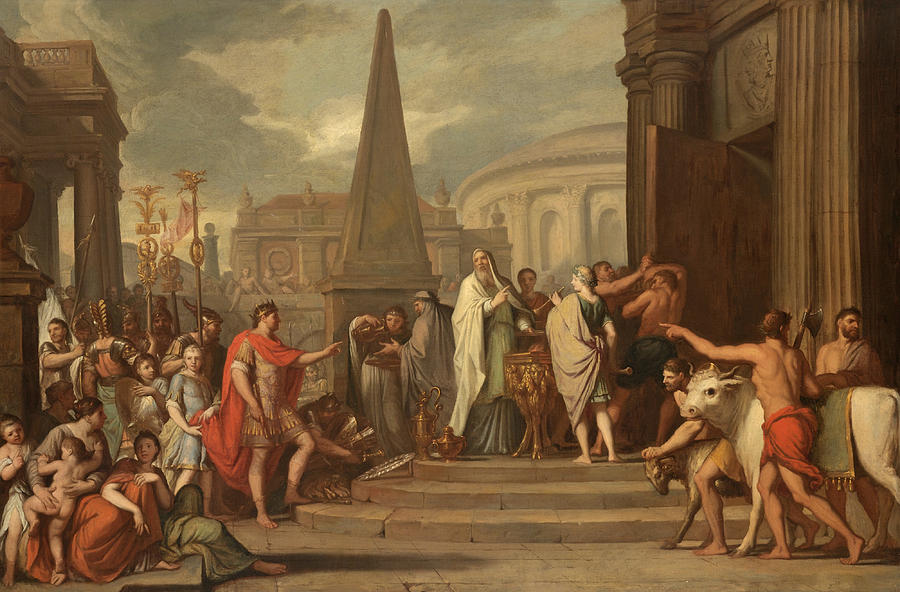A May 31 article in New Scientist, titled “Ancient Roman air pollution caused climate change in Europe,” is resuscitating the myth that “climate change” brought down the Roman Empire. To the extent global climate forces impacted the health of the empire, it was not generic climate change that harmed the empire. Instead, warming temperatures assisted the rise of the empire and subsequent cooling temperatures weakened it. By and large, climate change only weakens civilization when that change takes the form of cooling temperatures.
The Roman Empire rose and prospered during a time of beneficial global warming. The New Scientist article asserts that the empire played a role in bringing about subsequent cooling temperatures that ultimately contributed to the empire’s downfall. According to the article, soot from Roman fires blocked sunlight and cooled Europe. Deforestation as the empire expanded also cooled temperatures, according to the article. The message of the article is that climate change can and does bring down empires and civilizations.
The New Scientist message is not new. NBC News, PBS, BBC, Reuters, Discover Magazine, Smithsonian Magazine, and Vox are just a small sampling of media outlets that have linked climate change with the fall of the Roman Empire. Almost without exception, the headlines and messaging of these media reports ignore or mention only in passing that cooling temperatures were the specific form of climate change that coincided with the decline and fall of the Roman Empire. When climate change took the form of warming temperatures, the Roman Empire – and human civilization as a whole – prospered.
The lead paragraphs of a Reuters article on the topic are typical of the media coverage, with the media emphasizing that “climate change” is scary, even while subtly acknowledging that warming temperatures have historically benefited human health and welfare:
“Climate change seems a factor in the rise and fall of the Roman empire, according to a study of ancient tree growth that urges greater awareness of the risks of global warming in the 21st century.
“Good growth by oak and pine trees in central Europe in the past 2,500 years signaled warm and wet summers and coincided with periods of wealth among farming societies, for instance around the height of the Roman empire or in medieval times.
“Periods of climate instability overlapped with political turmoil, such as during the decline of the Roman empire, and might even have made Europeans vulnerable to the Black Death or help explain migration to America during the chill 17th century.”
As even Reuters subtly acknowledged, warming is beneficial and cooling is harmful.
For a good summary of how and why global warming has historically benefited human civilizations, while global cooling has harmed them, watch Dennis Avery’s presentation in Katowice, Poland, coinciding with the United Nations Conference of the Parties (COP25) in Katowice last December.
